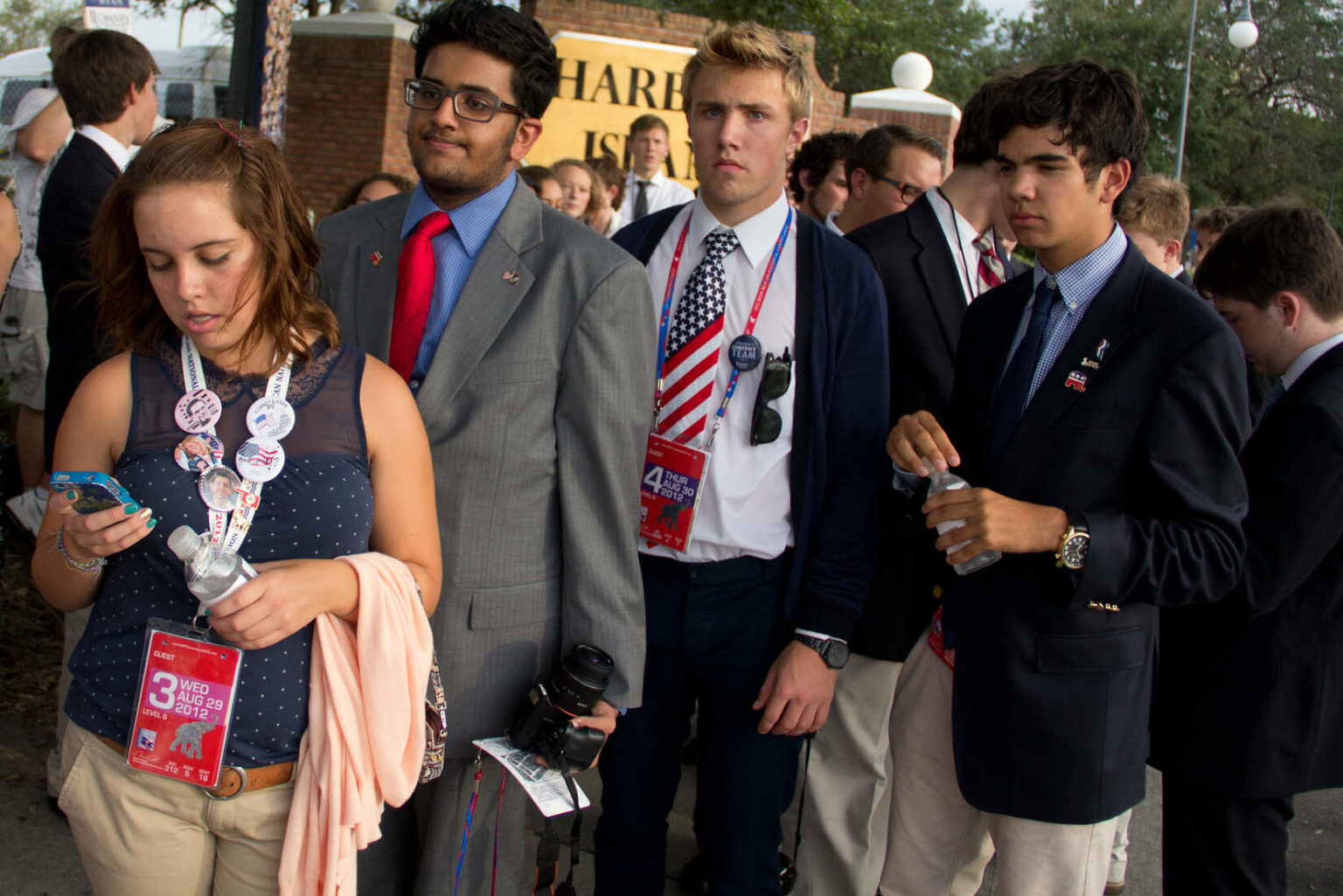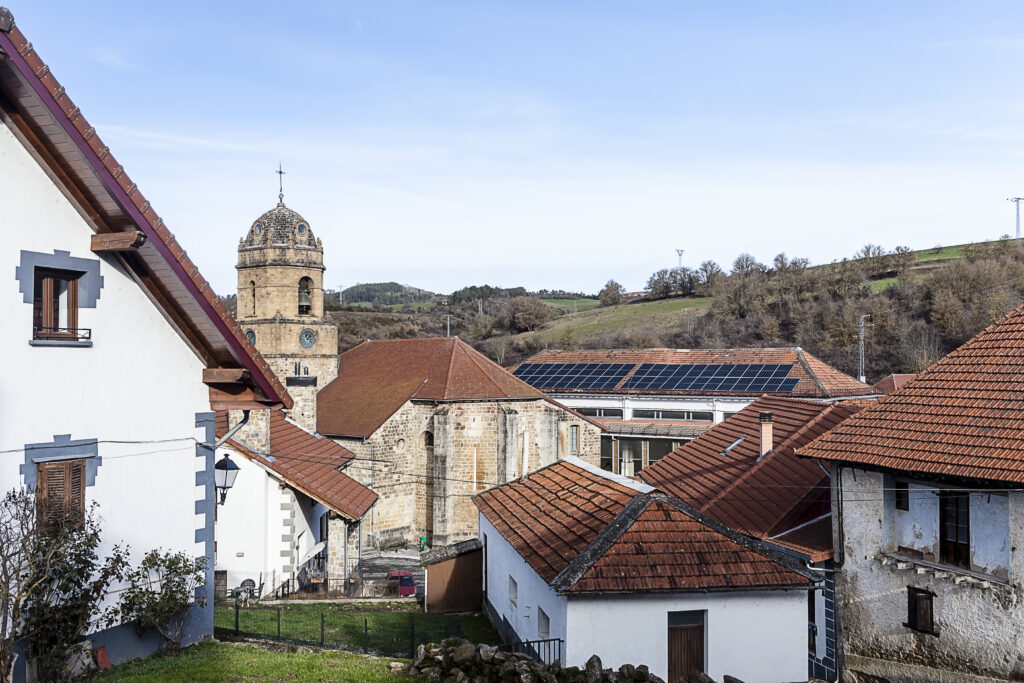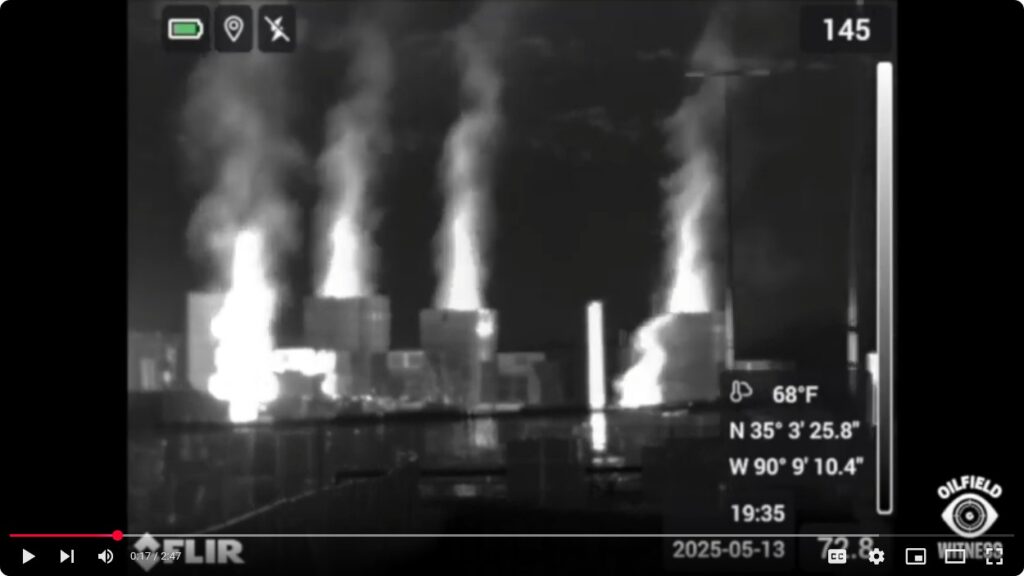By James Bruggers, InsideClimate News. This story originally appeared in InsideClimate News and is republished here as part of Covering Climate Now, a global journalism collaboration strengthening coverage of the climate story.
LOUISVILLE, Kentucky—As a teenager, amid the hardwood forests, waterfalls and wildflower meadows of the Parklands of Floyds Fork, Benjamin Myles took a liking to nature.
At the University of Louisville, Myles merged his libertarian-leaning politics with a curiosity about climate change, a subject that kept coming up in English class and in debates with his friends.
Such discussions led him to a new national movement of young conservatives who are working to persuade their Republican elders to put forward a climate agenda, without sacrificing traditional GOP principles like market competition and limited government.

The coalition has issued its manifesto in a presidential election year, when the stakes couldn’t be higher. While President Trump remains a resolute climate change denier, there is a wide consensus among scientists, and also in the military, that climate change is happening now, causing higher temperatures and heat waves, sea-level rise, an increasing frequency of extreme rains, wetter and more intense hurricanes, and longer droughts.
Myles now finds himself questioning another icon of the Republican party and one of the country’s most powerful political figures: U.S. Sen. Mitch McConnell, the Senate Majority Leader also from Louisville known for working to block the president who achieved the most on climate change, Barack Obama.
Myles, the president of the local college libertarian group, Young Americans for Liberty, is no fan of the Democrats’ approach to the issue, or the Green New Deal’s proposed massive shift in federal spending to create jobs and hasten a transition to clean energy by 2050. But Myles said he is frustrated by any established Republican who does not take climate change seriously, including McConnell.
“There is definitely frustration for myself and younger people who look at this issue and see the Republican Party, especially older GOP members, just ignoring it instead of offering an alternative,” he said.
“Our political system is all about providing multiple options,” Myles said. “But when one side decides it doesn’t want to discuss the truth of the problem at all, it feeds into the other side getting a monopoly on the discussion. That is really damaging.”
Across the South, Climate Change Divides Democrats and Republicans
In the South and across much of the United States, one way to try to tell a Republican from a Democrat is to invite a discussion about climate change.
Pew Research Center polling in February found that a growing number of Americans say tackling climate change should be a top priority for the president and Congress. But that change in views is mostly among Democrats: roughly 4 out of 5 say dealing with climate change should be a top priority, compared to just 1 out of 5 Republicans, Pew found.
GOP climate policy illustration. Credit: Jared Rodriguez / Truthout, CC BY–NC–ND 2.0
Climate change wasn’t always so divisive.
In 2008, for example, Speaker of the House Nancy Pelosi, a Democrat, and former Speaker Newt Gingrich, a Republican, famously sat on a couch in front of the U.S. Capitol, declaring they both agreed the country needed to take action on climate change. And they did it for Al Gore, the former vice president and global warming evangelist from Tennessee, who became conservatives’ climate-change punching bag
Today, young climate activists, led by Greta Thunberg and the Sunrise Movement—a grassroots youth climate action group that formed after Trump’s 2016 election—are the defiant voice for the climate, calling for a transformation of the global economy. They are carrying out global student strikes and persuading mayors to declare climate emergencies.
The demographics of climate politics are shifting, said Ed Maibach, professor and director of the George Mason University’s Center for Climate Change Communications.
While young Democrats and their parents and grandparents are “more or less all apoplectically concerned” about the climate, he said, a new report from the George Mason center and the Yale Program on Climate Communication identifies how young Republicans are becoming emboldened by the issue. In contrast to older Republicans, they have become more accepting of the human causes of climate change, rejecting the climate science denial that has taken hold in the party, Maibach said.
“The more young Democrats get involved in the issue, the more young Republicans get pulled along,” he added.
Both parties will have plenty to debate this year as voters in November decide whether to give Trump and his fossil fuel agenda another four years. Presumptive Democratic nominee Joe Biden, the former vice president, has described the Green New Deal as “a crucial framework” for climate action as he tries to convince climate voters he’s a true believer.
A Market Approach to Climate Change Mitigation
The American Conservation Coalition was founded in 2017 by Benji Backer, a 22-year-old from Appleton, Wisconsin, who was already a veteran in national political circles.
In 2014, at 16, Backer delivered a fiery speech at the influential American Conservative Union conference, defending former Wisconsin Republican Gov. Scott Walker’s bitter and successful battle against unionized teachers and declaring it “OK to stand up to those on the left that would scream us into quiet submission.”
But in September, he testified before Congress with Thunberg, arguing that “we cannot regulate our way out of climate change.”
The group and its climate contract have supporters ranging from natural gas lobbyists and libertarians to conservation and energy efficiency groups.
One of them is the Rocky Mountain Institute, a Colorado-based clean-energy think tank founded by physicist Amory Lovins. The institute’s Paul Bodner, who worked on energy and climate in the White House for President Obama, is on the coalition’s advisory board. He hopes he can help the young conservatives find their voice on climate issues.
The institute, he said, agrees with the Green New Deal’s “call to action” and shares its vision of “radical decarbonization of the U.S. economy,” but also agrees with the coalition’s “focus on unleashing market forces.”
The Bipartisan Policy Center, a Washington based think tank, also supports the young conservatives.
“When we see historically controversial policies that are pushed through by one party in a very politicized or polarized manner, those policies are more at risk of being undone, or vilified, at some point in the future,” said Sasha Mackler, the center’s director of energy projects. “For policies to be enduring over the long term, which is really what we need for a climate solution to be effective, bipartisanship is essential.”
‘We Would Rather Not Get Caught up in Debates’
The young conservatives’ contract makes no mention of the 2016 Paris climate agreement, with its goal of limiting rising global temperatures to well below 2 degrees Celsius. Nor does it share the sense of urgency expressed by scientists, who, in 2018, concluded that the world had about 12 years to get on a path toward zero carbon emissions by 2050.
Instead, the contract merely acknowledges the need to “move towards the goal of global net-zero carbon emissions by 2050.”
The Green New Deal envisions a rapid transition to a carbon-free economy, promising jobs and economic security and explicitly supporting an economic transition in communities that have long lived on incomes from fossil fuel industries.
By contrast, the contract modestly calls for “targeted investment and regulatory streamlining;” increasing clean transportation; creating a more energy-saving electrical grid; maximizing carbon storage in forests and farms; planting trees; supporting nuclear power; and establishing private-public partnerships.
We need to uplift our most vulnerable communities with policies that secure our environmental AND economic future.
TAKE ACTION now: https://t.co/Xn5EaDtgNR #RightOnClimate #COVID19 pic.twitter.com/ynRqvR4nw8
— American Conservation Coalition (@ACC_National) May 13, 2020
“We would rather not get caught up in debates on targets that are too much for one side of the aisle or the other,” said Danielle Butcher, chief operating officer of the American Conservation Coalition. “We view this not as a silver bullet to climate policy.”
The contract also does not recommend a carbon tax, which some moderates and Republicans have begun to embrace as a way to put a price on carbon and steer the economy toward a lower-carbon future.
“We want to focus on the steps we can take right now,” Butcher said.
The contract’s modest scope is its failing, critics counter.
Fighting climate change and economic injustice go hand-in-hand, said Sophie Karasek, a spokeswoman for the Sunrise Movement, which has rallied around the Green New Deal.
“A lot of young people have grown up with the fear of the climate crisis, and we already lived through the great recession, and remember what that felt like,” Karasek said.
What’s needed are “bold solutions from the government at the scale of the problems we face, and right now (with the Covid-19 pandemic) we are facing a great depression while also staring down the barrel of climate change,” she said. “We don’t have time to talk about private-public partnerships, or whatever.”
Mitch McConnell Has Been Setting the GOP Agenda on Climate
In Tennessee, Sage Kafsky, a 23-year-old volunteer with the American Conservation Coalition, echoed her young colleagues’ calls for market based, limited government solutions. But she also declared an admiration for Thunberg, the Swedish teenager whose defiance before the most powerful business and political leaders on the planet became the face of a new generation fighting climate change.
“I 100 percent believe in climate change,” Kafsky said in a telephone interview from her home in Ducktown, Tennessee, in the southern Appalachian Mountains, where she works as a paraprofessional in an elementary school. “I believe in people like Greta, who are having their voice, saying this is a major issue, and we need to fix it.”
But, she went on to say, “how to get there gets lost in translation” amid political polarization, even though “we have similar goals in mind.”
It’s never been easier to be active in climate politics!
With a few clicks, @ACC_National helps you contact your representatives and ask them to prioritize sustainability as we rebuild our economy.
Make a difference today.https://t.co/n1GTyUnzuH
— Danielle Butcher (@DaniSButcher) May 13, 2020
In Washington, D.C., it has been McConnell, 78, the coal-friendly Senate Republican Leader since 2006 and Majority Leader since 2015, who has, in effect, been setting the Republican legislative agenda on climate.
For example, he led the opposition to Obama’s climate and coal policies, then backed Trump on pulling out of the Paris agreement. Last year McConnell went out of his way to force Democrats to make a premature and what he hoped would be a politically damaging vote on the Green New Deal, while not offering alternative climate legislation.
McConnell is up for reelection to a seventh term in November. A spokesman declined to comment on the young conservatives’ efforts, except to say that the way to address climate change “is through technology and innovation.”
But words alone may not be enough for the GOP‘s new generation.
Butcher, of the conservation coalition, said the group has met with White House and McConnell staff to find policies that will reduce emissions and create economic prosperity. “Given the overwhelming consensus among young Republicans that climate is a top priority, we expect they’ll increasingly engage on the issue, and if not, we’ll push harder,” she said.
Myles, the libertarian-climate activist from the University of Louisville, came to see climate change as an issue the GOP couldn’t ignore or deny. “Getting into college and seeing how many other people care about it made me realize this is going to be a major issue and something that has the ability to affect all of us,” he said. “The GOP is moving on some issues, as more and more young people get involved. Climate change should be one of them.”
Main image: Young Republicans at the 2012 Republican National Convention. Credit: Andy Herbon, CC BY–NC 2.0
Subscribe to our newsletter
Stay up to date with DeSmog news and alerts








